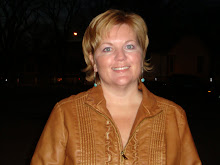A major aspect of working in marketing and communications is working with the media. For most people in this role, it's just an everyday part of the job and not much to get worked up about. For many of us, we started our career as journalists so we know that other news people are just that, people. What we need to remember, however, is that it isn't an everyday part of the job for our co-workers - many of whom we call upon to be experts to speak with the media.
I do believe that having experts from your organization trained and knowledgeable about the area in question are the right people to speak to the media. Having me be the spokesperson about genetic makeup of linola seed (for example) makes no sense. However, my responsibility is still crucial in this dialogue between journalist and seed researcher. Let me tell you how:
First, I have to build relationships with the journalists who are likely to be interested in covering any kind of news about my organization. That means knowing who they are, what particular interests they have, how they like to receive information, how to best get hold of them and MOST IMPORTANT returning their calls and respecting their deadlines. Building this relationship is not something that can be done overnight - it takes time, patience and a good attitude. As much as I am proving my reliability to the journalists, they are also proving their reliability and ethics to me in how they treat information I provide and how they cover stories.
Second, I have to ensure my team of experts are trained in media relations. Not just once, but at least annually, they need a bit of a refresher since after all, this isn't something they deal with daily. It's like my ability to speak French - it gets so rusty from disuse that when I do go to have a conversation it is pretty squeaky. People who haven't had any exposure to media will benefit from a one or two day intensive training course. Then they need to be eased into the role of expert spokesperson. My role here is sometimes to provide the training, if budgets are tight, but always to provide insight on my organization's media interview philosphy, even if I'm not the main instructor.
Third, I have to make sure my expert spokesperson, especially the new ones, are sufficiently prepared for the interview. I'm not talking about putting words in their mouth - they know the information, they ARE the experts. I just want to make sure they've thought about what kinds of questions they're going to be asked, thought about what their answers are, practiced them a bit on a friendly face, so that when it comes time for the in-person interview they aren't struck mute. That would be a waste of time for them and for the journalist who wants some quotable quotes, whether for print, radio or television. Preparation is key to a good interview.
Finally, I follow up with the journalist to see if they got all the information they needed for their story and usually just to give one last delivery of my organization's brand message. Very often a reporter will get back to their news room and realize they need a statistic or a spelling or something to round out their story. I'm there to track it down for them and provide it. I try to make their job easier so they're more inclined to cover my organization's good news and I try to make my expert spokesperson's job easier so they are more inclined to enjoy the media relations experience and do it again, and again, and again!
Tuesday, May 18, 2010
Subscribe to:
Post Comments (Atom)

No comments:
Post a Comment